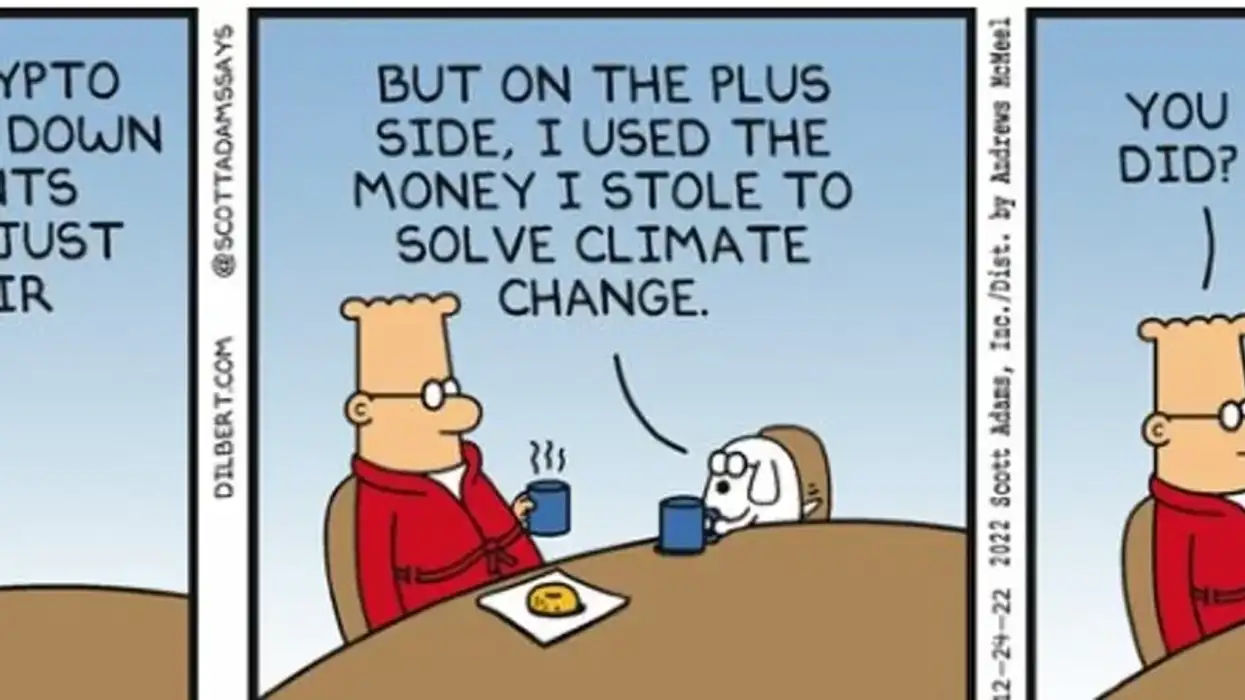SEVERAL newspapers in the US have dropped the Dilbert comic strip after its creator, Scott Adams, made racist remarks.
In a YouTube video, Adams referred to black Americans as a "hate group" and encouraged white individuals to "get the hell away" from them.
The USA Today network, which manages numerous newspapers, and the Los Angeles Times are among the media organisations which stopped publication of the Dilbert comic strip.
According to The Washington Post, Adams' statements advocated for segregation. He made these comments in relation to a survey conducted by Rasmussen Reports that asked individuals to express agreement or disagreement with the statement: "It's OK to be white."
The term is thought to have originated in 2017 as a means of trolling and has subsequently been adopted by white supremacists.
The survey showed that 53 per cent of black participants agreed with the statement, but 26 per cent disagreed, with some expressing uncertainty.
In response, Adams referred to those who disagreed as a "hate group."
"I would say, based on the current way things are going, the best advice I would give to white people is to get the hell away from black people… because there is no fixing this," he said.
For years, Dilbert has been a fixture of American newspapers' comic sections, showcasing an under-pressure office employee and his talking dog sidekick as they satirise the latest trends in corporate culture.
The Los Angeles Times also released a statement acknowledging that it had omitted four Dilbert cartoons from its pages in the past few months due to breaches of its editorial policies.




